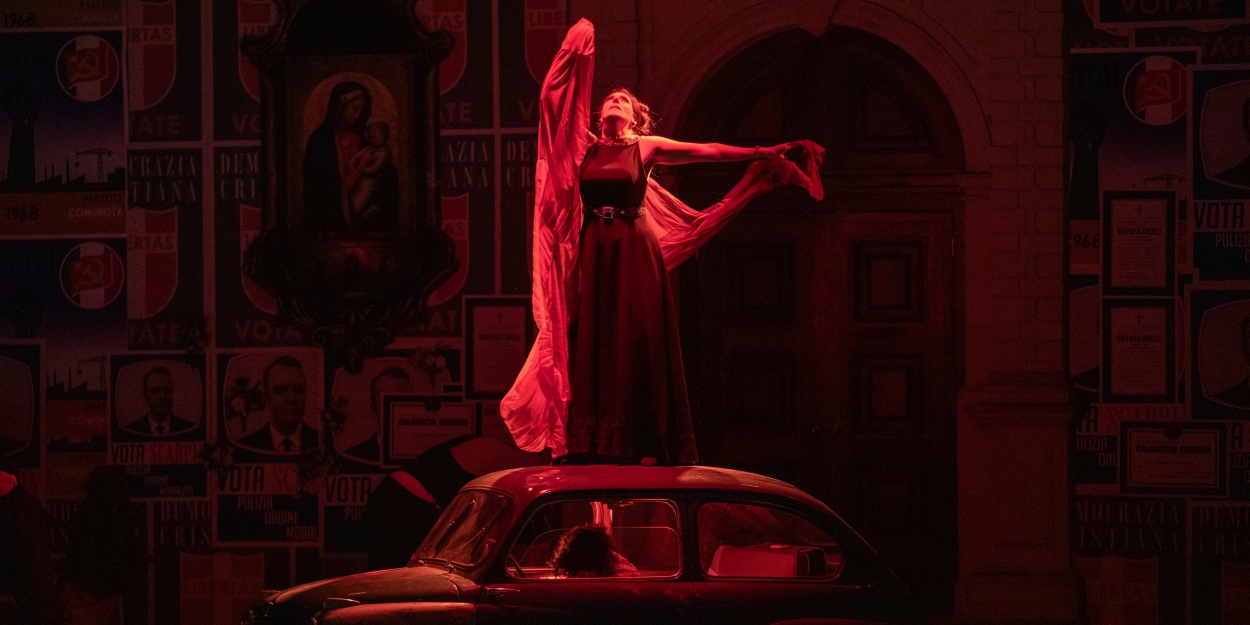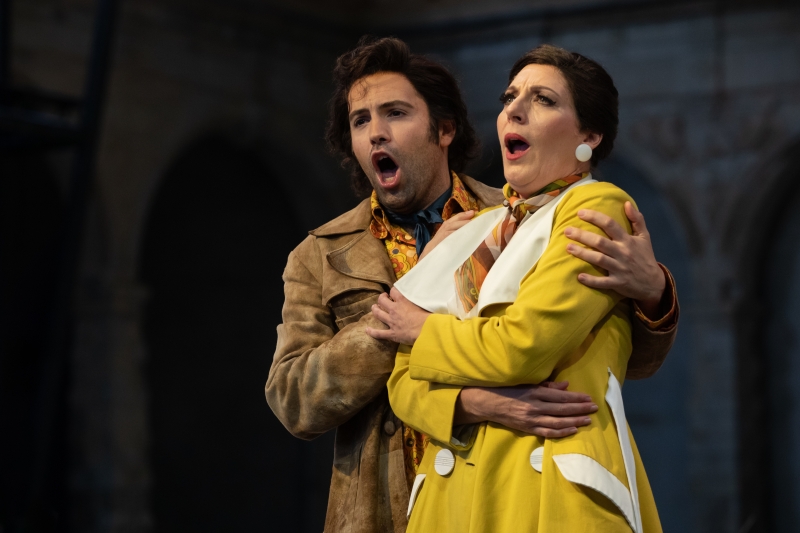Review: TOSCA, Opera Holland Park
Puccini's singer is back to skewer the evil police chief

 There’s plenty of mentions in the programme of Joseph Kerman’s dismissal of Tosca as a ‘shabby little shocker’, a phrase that has stuck around for 68 years despite the opera being neither shabby, not little, nor shocking (by today’s standards anyway). But it does get to a point about some operas - and most musical theatre not written by Stephen Sondheim - that they can be guilty pleasures. The question is whether life is long enough to sniffily forgo such delights - I know mine won’t be!
There’s plenty of mentions in the programme of Joseph Kerman’s dismissal of Tosca as a ‘shabby little shocker’, a phrase that has stuck around for 68 years despite the opera being neither shabby, not little, nor shocking (by today’s standards anyway). But it does get to a point about some operas - and most musical theatre not written by Stephen Sondheim - that they can be guilty pleasures. The question is whether life is long enough to sniffily forgo such delights - I know mine won’t be!
That the house was full on a drizzly, chilly season opener at Opera Holland Park suggests I’m not alone in that conclusion and few will leave disappointed by a revival last seen in 2008, a production so loyal that it retains Amanda Echalaz as the eponymous heroine. There are some changes in staging, as 14 years is a long time in an evolving venue, but not much required fixing and so it wasn’t, Stephen Barlow wisely back in the director’s chair once again.
.jpg)
It’s 1968, a year of political turmoil across the Western world, and Rome is in the throes of elections and authoritarian crackdowns. The counterculture is being countered by populists stoking fears while offering easy solutions, with police chief and aspirant politician, Scarpia, to the fore, running the city through henchmen and extra-judicial punishments. He’s infatuated by Tosca, the singer, but she loves Cavaradossi, the painter, with a jealous fervour. He’s in love with her, but he’s also committed to protect his friend and revolutionary, Angelotti, an escaped political prisoner. Scarpia sees his chance to seize Tosca and eliminate her lover and his political rival, as Rome teeters on the brink of chaos. He almost succeeds.
Giacomo Puccini captures this swirl of Latin emotion in music that roils like an angry Tiber, individual and collective hopes and fears expressed through the fusion of music and voices. There are arias, though not the popular classics one finds in Turandot and Butterfly, and they are given full value, particularly by José de Eça (Cavaradossi) and Echalaz (Tosca), the diva playing a diva. That said, under Matthew Kofi Waldren's baton, the City of London Sinfonia are mainly employed delivering a score that paints an aural picture, picking us up and crashing us down. As ever with Puccini, he somehow makes pain beautiful to behold - it must be growing up surrounded by all those Renaissance paintings.
The mark of a good villain is to be booed at the curtain and Morgan Pearse was (through some thunderous applause of course). His Scarpia is a would-be rapist, torturer and ruthless manipulator of a cowed and gullible people - thank heavens nobody of so flawed a character could ever run for election in a democracy in 2024 eh? - an irredeemable scoundrel who deserves his Judas kiss from his resistant prey.

There’s echoes of The Godfather throughout (no spoilers now, but Sonny Corleone’s fate came to mind at one point) and the infamous closing scene is spectacular, but nor quite as spectacular as it might be. Having been in Italy last week as the country prepares for EU elections, I can confirm that Yannis Thavoris’s gorgeous set is authentic still, and that opera singers can look like real politicians on real campaign posters.
So, does the old charge stand up, a pleasure tinged with guilt? Probably, but that’s true of all opera. We pay to enter an enhanced space, a forum of emotions dialled to 11, a world like ours but brighter and darker all at the same time. Few understood that better than Puccini and even fewer realised it so completely on stage. That’s why, 124 years on from its premiere, Tosca is as much a part of the opera lover’s life as ever it has been. So no apologies for the revival and no apologies for a little wallowing in the feast that only this form of entertainment can supply.
Tosca is at Opera Holland Park until 22 June
Photo images: Ali Wright
Reader Reviews

Videos

